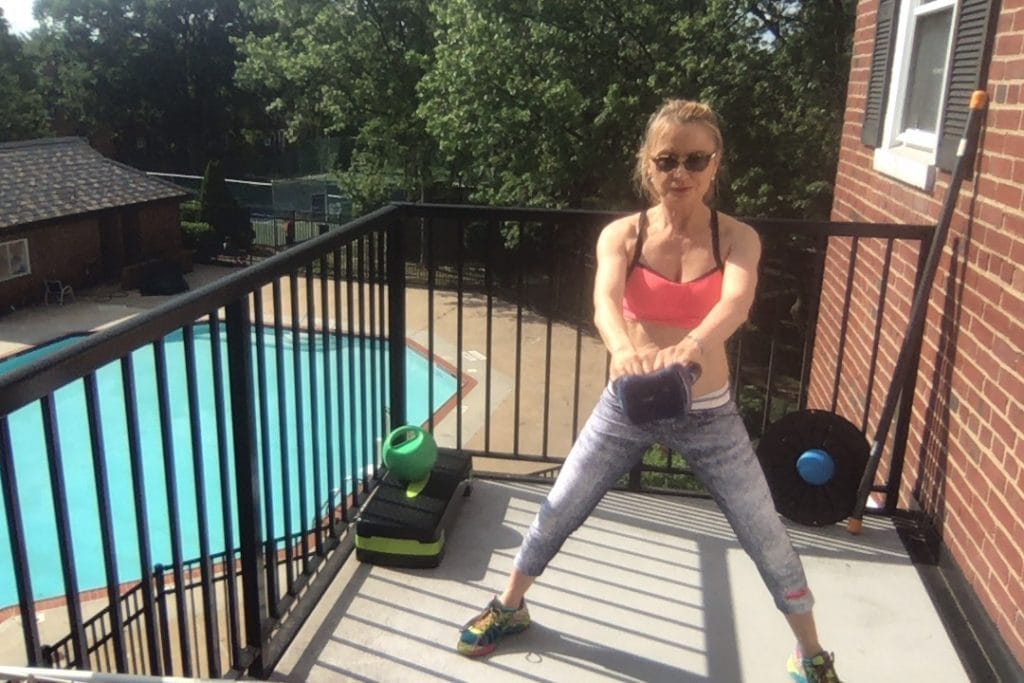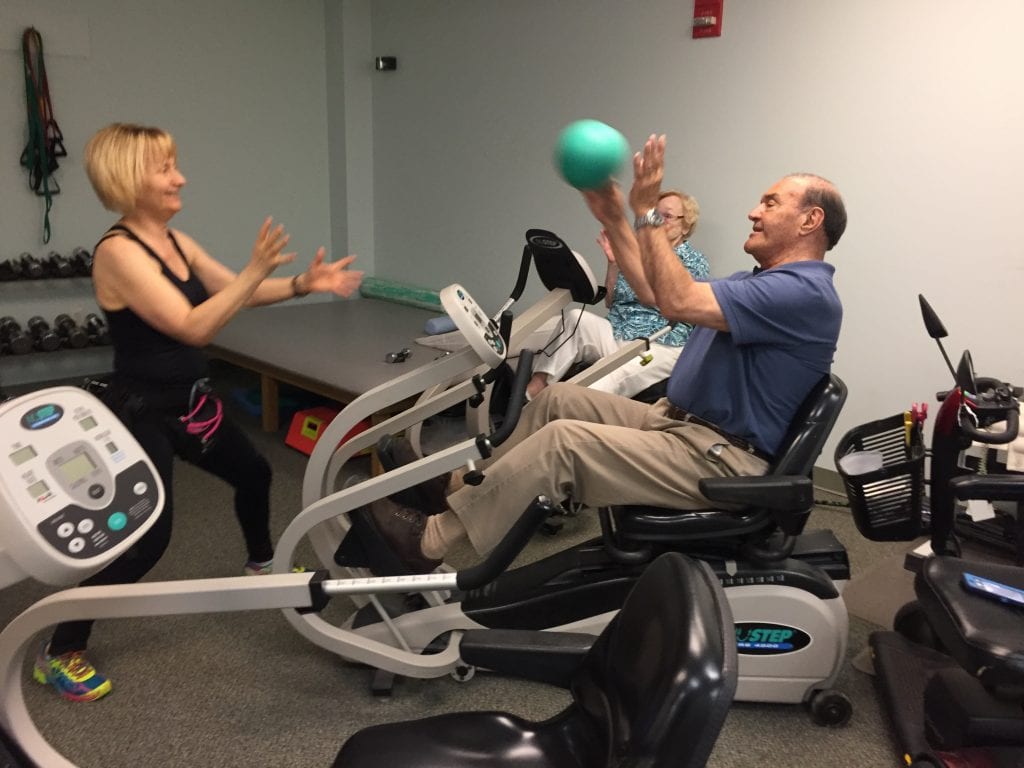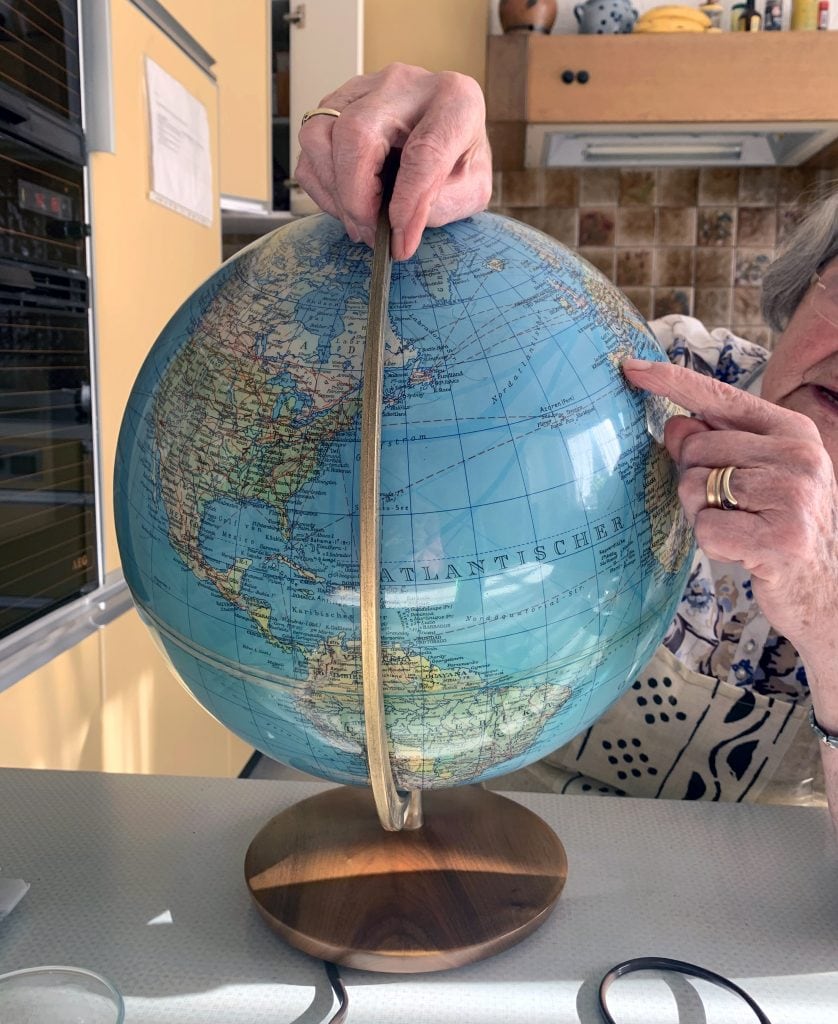Caregiver stress is an established problem, but it’s been exacerbated by the COVID-19 pandemic. Many caregivers are finding themselves shouldering more burden and having less access to resources that ease their path. I’m here to lift the lid on this amplified stress and to support caregivers with strategies to alleviate their emotional load.
The stakes are high. As you will find it elaborated in our future article “The Hidden Health Risks of Being a Family Caregiver,” high levels of caregiver stress are not only about the way you feel at the moment. They have the potential to send tendrils of ill-health into the later years shortening both your life and healthspan.
Below I describe seven strategies to calm you and promote your good health of body and mind. And as you’ll see, I’ve found ways to involve your loved one, too.
How COVID-19 Magnifies Caregiver Stress
COVID-19 has increased the burden on caregivers. Many of us are concerned about protecting ourselves and our loved ones. People who are committed to keeping loved ones at home can be deeply alarmed by the thought of them dying alone in the hospital. And the demands of being at home may be more onerous than ever if other family members or professionals who usually support your efforts are unable to attend. These extra challenges may have resulted in less time out than ever before.
Changes to the available food may exacerbate health conditions, and lack of exercise can weaken the body and increase the risk of falls. The lack of all-important cognitive stimulation that comes with socializing and engaging with the broader world may worsen symptoms of dementia. And the threat of a second wave of infection only adds to the worries.
Pandemic-related financial pressures and uncertainties are other potential sources of stress. They can also mean that some resources are no longer accessible to families.
Even the fraught prospect of leaving your loved one can be exacerbated. I saw this myself when my mother was caring for my father, who had vascular dementia. She needed to go to the hospital for a few weeks and told my father this. My father didn’t understand and became increasingly anxious about her leaving. Again and again he asked why. My mother ran out of the energy to repeatedly explain, and her anxiety about how he would cope in her absence grew.
Having been an in-person and now long-distance caregiver myself, I understand that it is not always easy to find or access resources that genuinely help. That is why I am here: to pull together the best and latest evidence-based information for caregivers and present it in an accessible way.
Your Seven Approaches for Better Emotional and Physical Health
Virus or no virus, there are ways for caregivers to lessen the stress they experience. Here are a few examples of evidence-based tips to help you cope with toxic stress and improve your physical and emotional health as a caregiver.
1. Flush Out Negative Thoughts Before They Become Toxic
A major way stress reaches our body and brain is via our thoughts. Dr. Daniel Amen calls them ANTs or Automatic Negative Thoughts. These can contribute significantly to fears, anxiety, and perceived stress. You can modify your thinking to help calm or eliminate your ANTs, and thus ease the impact of stress. As Dr. Amen says:
“Most people do not understand how important thoughts are and leave the development of thought patterns to random chance. Did you know that every thought you have sends electrical signals throughout your brain? Thoughts have actual physical properties. They are real! They have a significant influence on every cell in your body. When your mind is burdened with many negative thoughts, it affects your deep limbic system and causes deep limbic problems (irritability, moodiness, depression, etc.). Teaching yourself to control and direct thoughts in a positive way is one of the most effective ways to feel better.”
How can you fight off ANTs and rewire your brain to focus on positive thoughts in general? There are several methods, but one way to get started is by practicing gratitude.
The first thing I do every morning is to be silent and spend five minutes looking out into nature, breathing deeply and calmly, and thinking about what I am grateful for. I found it a bit difficult to start the practice, but it has now become addictive. I crave the beautiful feeling that comes over my body as I feel the stress melt away, and positive emotions flow in, and I’ve learned to do it at other moments during the day when needed.

Another method is to acknowledge what is beyond your control. I tend to feel anxious about my mother’s suffering and safety. My remedy has been to leave no stone unturned to find ways to help her, including communicating with doctors and nurses and engaging an in-home caretaker to provide her with the best care. As I am doing everything possible in my control, I acquire greater peace of mind.
How do I distract my mom from anxiety as she realizes that she can no longer clearly explain her thoughts or needs? How do I react when she tells me that the world is getting smaller and smaller around her, realizing not only that she becomes closer and closer confined to the house, but continues losing control over her life? I try to distract her by reminding her of moments in her life she treasured. I pull out a photo album and let her try telling me stories. Most importantly, whenever I can, I take her in my arms, give her a big hug and reassure her that I will be with her every step of the way. And of course, there is spirituality to help.
2. Flush out Toxic Stress with Physical Activity and Exercise
You probably know how a long walk or run clears your mind, improves your mood, and makes problems seem smaller. Exercise is one of the fastest and most effective ways to relieve stress.
Exercise is one of my almost daily routines, even in isolation. It keeps my stress and anxiety levels in check.
Whenever I’m worried or stressed, I know that I can rely on exercise to melt at least some of it away and make me feel more energized. I take a long walk when possible and have exercised on my balcony during the lockdown.

It can be challenging to get started when I have pain or low energy, but because I know how much better it makes me feel, it has become addictive.
Remember that you can exercise with your loved one. My mom and I had a special 2019 New Year’s Eve party. After a nice dinner, with just the two of us, I said, “let’s party” knowing that my mom has loved dancing all her life. She hesitated at first, but then holding tight on her chair and with a broad smile on her face started dancing. That might not sound like much of a New Year’s Eve party, but it is a memory I will treasure forever.
Playing softball is another way to activate and strengthen not only your body but also your mind. In this photo with me stepping and running side to side, going up and down, I not only got my heart pumping. I also made my client work harder and laugh while training his ability to pay attention and react to whatever challenges he may encounter next in his daily life.

I have even been able to get my aunt to enjoy moving with me to music, although she had no appreciation for exercise for most of her life and had been more of a strict and somber personality. Choosing the right music and with a big smile on my face, I got her to dance with me in her wheelchair. Sometimes we also played catch with a softball. Not only did I see a big smile on her face, but it also got both of our hearts to pump healthily, the stress hormones in your bodies and brains sliding away with the enjoyment, with the two of us bonding more closely than during much of our previous life.
3. Nature Will Nurture
You might notice that I often mention nature. Time spent in nature has amazing benefits, from lifting your spirits to strengthening your immune system. Combining the outdoors with exercise increases these benefits.
You can start slowly by simply walking barefoot in the grass, or you can venture forth on a long walk in the woods to boost your physical, mental, and spiritual fitness. You and your loved one can sit in the garden with your feet in the grass. Take a look at my article that describes ways to enjoy a dose of nature when you and your loved one can’t spend extended time outdoors.
4. Socialize to Boost Your Mood
Even if we must do physical distancing, there is no need for social distancing. Socializing can be incredibly beneficial because it stimulates your brain, slows cognitive decline and memory loss, reduces stress, and helps you stay positive.
On the flip side, social isolation is unhelpful. It can lead to loneliness, which weakens the immune system and leaves us less able to fight off infection. It significantly predicts the risk of death. And without social stimulation, the nerve connections in our brain dwindle more rapidly.
A silver lining of the COVID-19 lockdown is that we have learned to connect virtually with friends and family. You and your loved one can send messages of love. Share stories and take tea together over video or phone calls.
For those of you who have a loved one in a hospital or senior community, let’s bless those nurses and healthcare workers who take time out of their busy schedule to put us in touch with our loved one. My mother’s in-hospital caregiver shows her a daily video that I send her. And if it were not for my mother’s broken shoulder, I would also call her several times a day.
5. Bolster Your Resilience with Restful Sleep
Sleep is lifestyle medicine for the body and brain. A good night’s rest can bolster youagainst daily stresses. Tired people are less patient and more easily agitated, which can cause friction.
But stress can be the enemy of sleep, creating a vicious cycle. Exercise can help break that cycle; there is good evidence that the stress-flushing effect of movement improves sleep.
Similarly, meditation helps reduce stress and promote sleep. Each evening I practice a type of active meditation that involves movement followed by stillness and deep relaxing breathing.
There are many other strategies you can use to improve your sleep, but I’ll mention just a couple more. One is to manipulate your temperature by taking a hot shower or bath before bedtime and keeping your bedroom dark and cool. Certain foods, such as cherries, nuts, and warm milk, are also helpful.
As a caregiver, you may need to be available all night long. Naps can therefore be hugely beneficial, as long as you take them early enough in the afternoon, so they don’t prevent you from falling asleep at night.
6. Beat Isolation-Caused Stress and Anxiety with Brain Stimulation
Perceived loneliness has a more far-reaching effect on mental and physical health that many people realize. It has been found to raise levels of stress, depression, or anxiety; to impede sleep and the brain’s executive function; to accelerate cognitive decline, and even to harm heart health and the immune system. One study found that “… the magnitude of risk presented by social isolation is very similar in magnitude to that of obesity, smoking, lack of access to care and physical inactivity.”
Socializing is one way to beat perceived loneliness. But there are also other ways you can keep your mind active and stimulated, even if you are isolated.
Thankfully COVID-19 has multiplied a wide variety of online opportunities, some of which you can do with your loved one. You can learn a new language or instrument, take a free online course, or keep a coronavirus diary. You can sing with a worldwide choir, which will not only activate your brain but also connect you with a greater community. You can explore a new healthy recipe.
Researching, learning new science, and writing have been some ways I have kept my mind busy during COVID-19. And although this has had its challenging moments, I know that unless we stimulate our brains in sometimes challenging ways and learn new things, our brain shrinks or brain connections wither, and we have more chance of premature cognitive decline and neurodegenerative disease.
You can also take on new challenges with your loved one. For example, my mother has been a lifelong passionate baker. While she can no longer organize or remember all the steps required, she can bake with help. If the cake collapses, I let her find solutions, and this challenges her brain. I’ve seen that success after several attempts brings her great joy and strengthens her feelings of self-efficacy.
My mom loves traveling. Once, she pulled out the globe and started telling me of all the beautiful places and experiences she has had. It lifted her spirits and jogged her memory.

7. Use Nutrition to Protect Yourself From Toxic Stress
Toxic stress tends to start with thoughts and emotions, but it ends up having biochemical effects in the body and brain. You can consume certain foods and beverages that protect against these physical effects and therefore boost your resilience.
Diet can even bolster you against chronic diseases such as dementia and Parkinson’s. Flavonoid-rich foods, in particular, such as tea, berries, and apples, have protective effects. Perhaps you can even persuade your loved one to join you, particularly if you add chunks of dark chocolate!
I was able to sneak some berries into my mom’s diet by telling her that I had purchased too many, and they would spoil if she did not eat some. I prepared an assortment of berries andtopped it with a slice of banana and dark chocolate. She resisted at first, but now when I’m with her, she expects and enjoys this little dish.
Use Your Toolbox
Caregiving is a notoriously stressful role, and COVID-19 has accentuated those stresses for many caregivers. I encourage you to use the tools described in this post: turn around the negative thoughts that can fuel stress, move well, enjoy nature, sleep well, stimulate your brain, and nourish yourself with healthy food. You can make these strategies time-efficient by combining them with your caregiving role where possible. And remember that what you are doing is deeply valuable.
Do You Want More Resources, Information and Support?
Stay posted for additional tips and resources, including our CAREGIVER method. It will provide you with the knowledge, skills, and tools to optimize your loved one’s health and quality of life while also supporting your chances to thrive through the ages with a healthy body and mind.
Join the Age with Joy Community and get free, valuable tips and resources for taking control of your physical and emotional destiny. The power is in your hands!

0 Comments